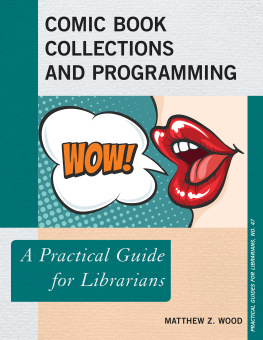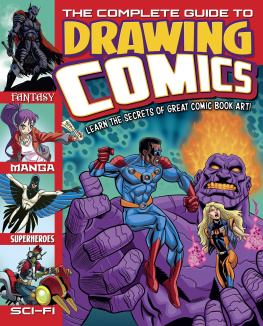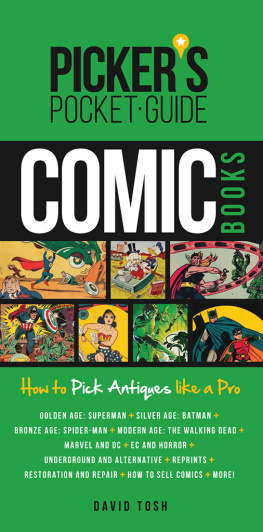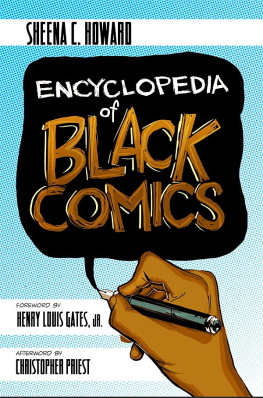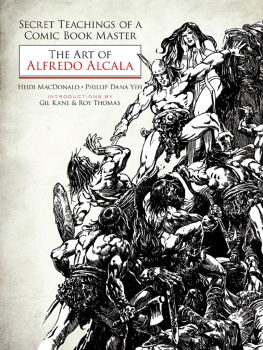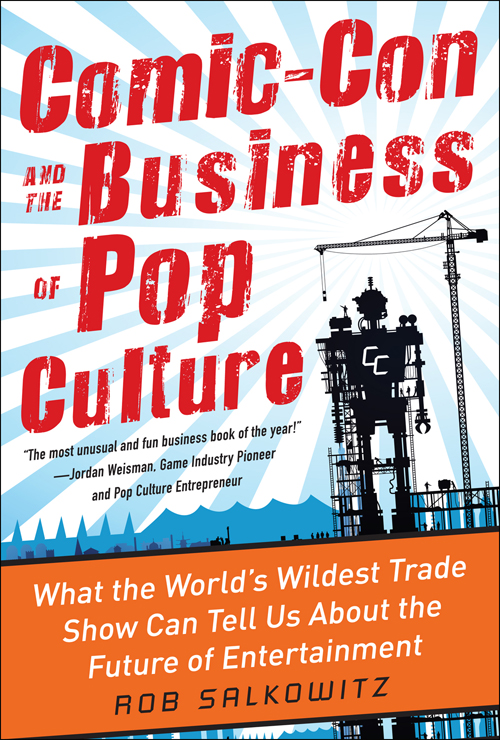Salkowitz - Comic-con and the business of pop culture : what the worlds wildest trade show can tell us about the future of entertainment
Here you can read online Salkowitz - Comic-con and the business of pop culture : what the worlds wildest trade show can tell us about the future of entertainment full text of the book (entire story) in english for free. Download pdf and epub, get meaning, cover and reviews about this ebook. City: New York u.a, year: 2012, publisher: McGraw-Hill Education;McGraw-Hill Professional, genre: Romance novel. Description of the work, (preface) as well as reviews are available. Best literature library LitArk.com created for fans of good reading and offers a wide selection of genres:
Romance novel
Science fiction
Adventure
Detective
Science
History
Home and family
Prose
Art
Politics
Computer
Non-fiction
Religion
Business
Children
Humor
Choose a favorite category and find really read worthwhile books. Enjoy immersion in the world of imagination, feel the emotions of the characters or learn something new for yourself, make an fascinating discovery.

- Book:Comic-con and the business of pop culture : what the worlds wildest trade show can tell us about the future of entertainment
- Author:
- Publisher:McGraw-Hill Education;McGraw-Hill Professional
- Genre:
- Year:2012
- City:New York u.a
- Rating:3 / 5
- Favourites:Add to favourites
- Your mark:
Comic-con and the business of pop culture : what the worlds wildest trade show can tell us about the future of entertainment: summary, description and annotation
We offer to read an annotation, description, summary or preface (depends on what the author of the book "Comic-con and the business of pop culture : what the worlds wildest trade show can tell us about the future of entertainment" wrote himself). If you haven't found the necessary information about the book — write in the comments, we will try to find it.
Action! Excitement! Transmedia! Step inside Comic-Con to discover the cultural trends that will shape our world
Ive been in comics so long I sometimes think I invented em! But I just read Rob Salkowitzs terrific new book and, yknow what? Even I learned new stuff! If youre a comic book nut like me, miss it at your own risk!
Stan Lee, Legendary Comic Creator and Publisher
Salkowitz tells it pretty much like it is: the good, the bad, and the ugly of the commercialization of one of Americas greatest art forms, as well as the indefatigable artistry of its creators. He is at once informative, insightful, sobering, and inspiring.
Douglas Rushkoff, pop culture analyst and author of Program or Be Programmed: Ten Commands for a Digital Age
If you care at all about comics, this is an essential read (and if you dont, Salkowitz just might win you over). But its also grab-worthy for anyone interested in the fascinating, conflicted, unfolding future of digital publishing and transmedia entertainment.
Booklist (Starred Review)
What began more than four decades ago as an intimate gathering of comic book creators, fans and legends has become a packed entertainment event. Although it doesnt have the same ring to it, Comic-Con could more appropriately be called the Transmedia Pop Culture Con where buzz for a years worth of projects is created, prolonged or squelched. Yet, despite the awareness that the con is a giant marketplace where producers sell directly to customers, there has been shockingly little analysis of the business of the event before Rob Salkowitzs new book, Comic-Con and the Business of Pop Culture.
CNN Geekout
The true gift in Robs book is how very hard it becomes for you to decide, whether youre a business reader reading a pop culture book, or a comics fan reading a business book.
PopMatters
The book explores the business aspects of the show and how it is a microcosm of the growing transmedia aspects of both comic books and their connection to things such as film, TV, and video games. All the while, acting as a travelogue by a long-time fan of comics and Comic-Con.
Technorati
Salkowitzs first hand observation makes us feel like we are walking the convention floor with him. In some chapters you sense his thrill as he meets a few of his fan favorites. Comic-Con and the Business of Pop Culture should be a great book for comic book fans, moviegoers, pop culture followers, and marketing gurus.
Trashwire
Welcome to Comic-Con: where the future of pop culture comes to life
Every summer, more than 130,000 comic fans, gamers, cosplay enthusiasts, and nerds of all stripes descend on San Diego to mingle with the top entertainment celebrities and creative industry professionals in an unprecedented celebration of popular culture in all its forms.
From humble beginnings, Comic-Con has mutated into an electrifying, exhausting galaxy of movies, TV, video games, art, fashion, toys, merchandise, and buzz. Its where the future of entertainment unspools in real time, and everyone wants to be there.
In Comic-Con and the Business of Pop Culture, author Rob Salkowitz, a recognized expert in digital media and the global digital generation (and unabashed comics enthusiast), explores how the humble art form of comics ended up at the center of the 21st-century media universe. From Comic-Cons massive exhibit hall and panels to its exclusive parties and business suites, Salkowitz peels back the layers to show how comics culture is influencing communications, entertainment, digital technology, marketing, education, and storytelling.
What can the worlds most approachable and adaptable art form tell us about the importance of individual talent and personal engagement in the era of the new global audience, the iPad, and the quarter-billion-dollar summer blockbuster? Here are some of the issues Salkowitz explores:
How do you succeed in the transmedia maelstrom? Comics have hopscotched across the media landscape for decades. What can we learn from their successes and failures as we careen toward a converged digital future?
Have comics cracked the digital code? Everyone is scrambling to deal with the business disruptions of digital distribution. Does the recent success of comics on tablets demonstrate a new model for other industries, or do dangers lie ahead?
Whats next for peak geek? Will the ascendant nerd culture of the early 2010s keep its new audience engaged or burn out from overexposure?
Comic-Con and the Business of Pop Culture combines the insights business leaders need with the details fans crave about the future ofthe worlds most dynamic industry. Even if you cant be in San Diego in July, this book brings the excitement into focus . . . no costumes required!
Salkowitz: author's other books
Who wrote Comic-con and the business of pop culture : what the worlds wildest trade show can tell us about the future of entertainment? Find out the surname, the name of the author of the book and a list of all author's works by series.

